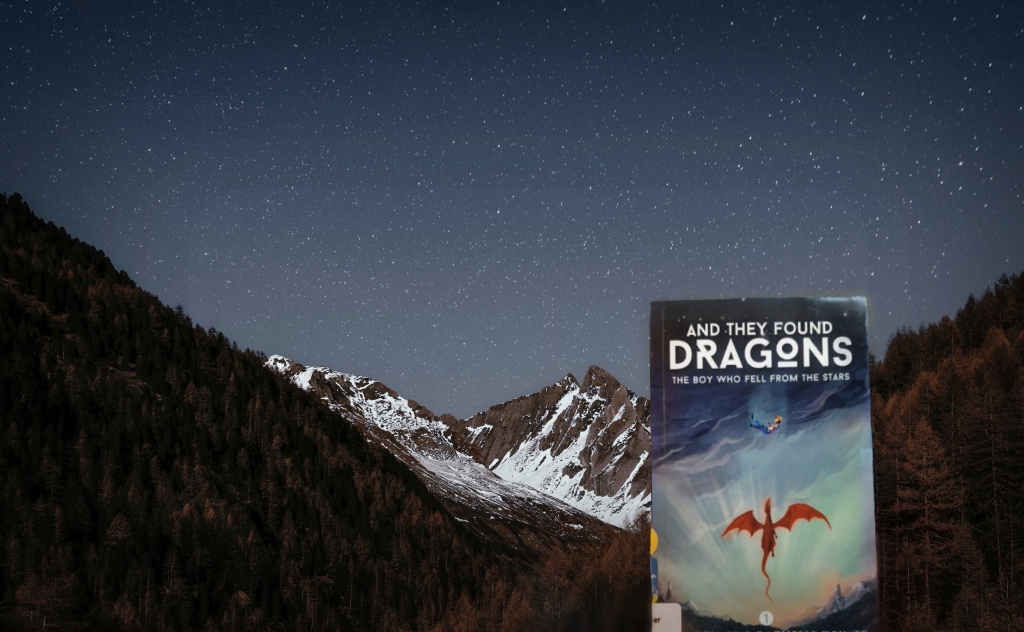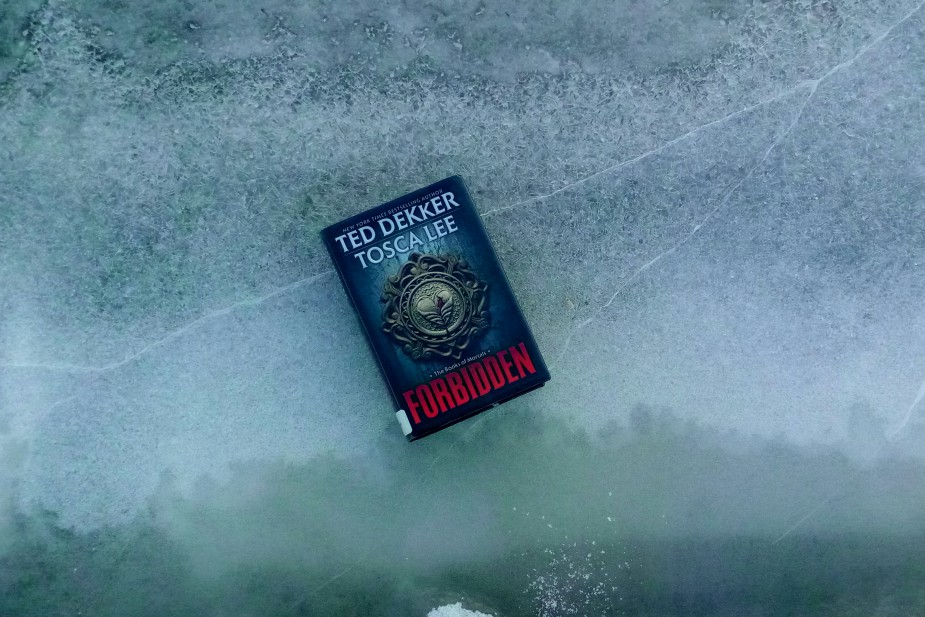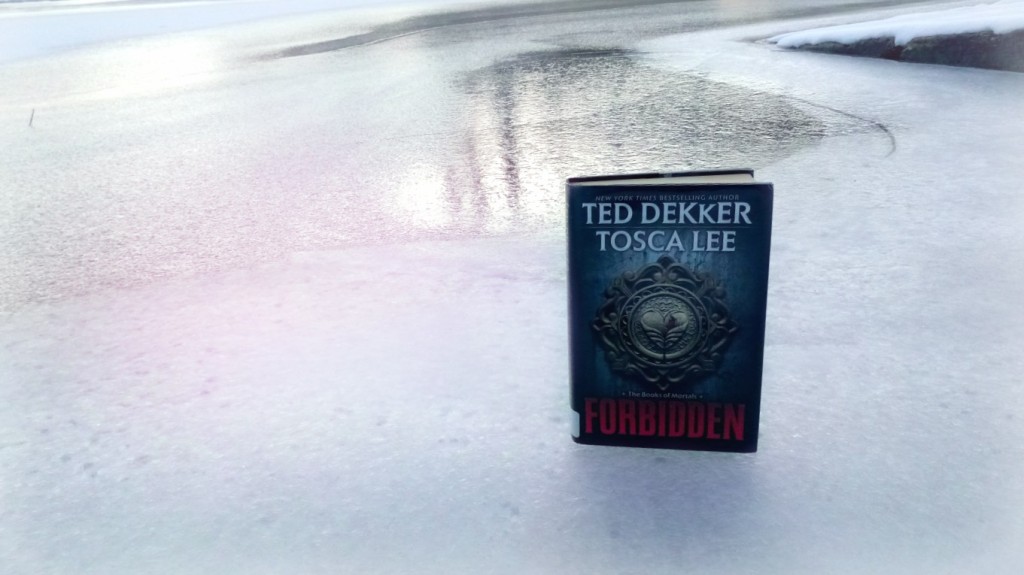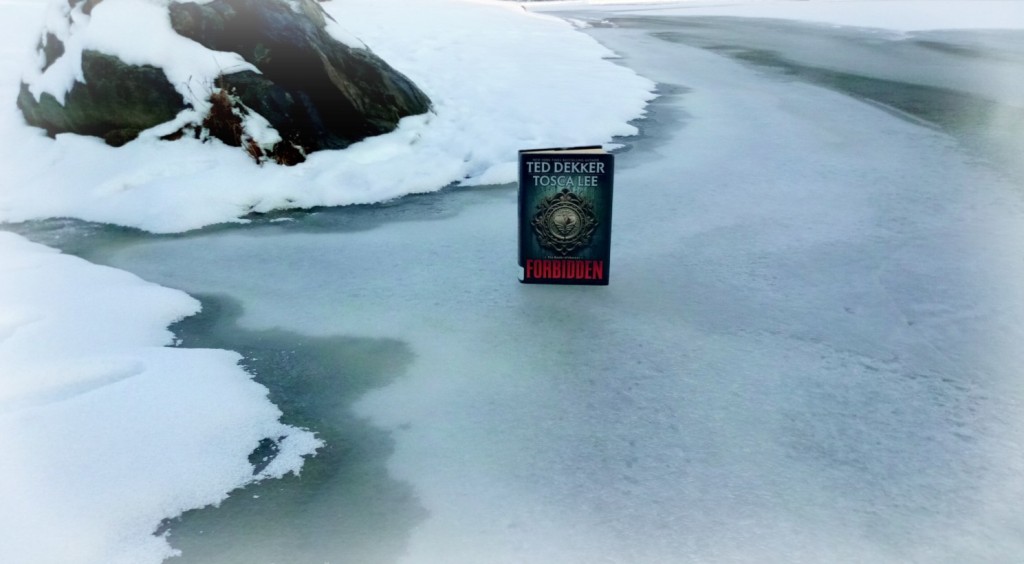
I don’t review much children’s fiction here on the blog, but I absolutely cannot pass up the opportunity to talk about this gem, The Boy Who Fell from the Stars. Not only is it Christian fiction (hard to find for kids these days) it also falls into the science fiction genre… with just a dash of fantasy. I really wish this series (a three book set: And They Found Dragons) had been available when I was growing up– it would have checked every box for me. Spaceships? Yes. Young people tasked with saving humanity? Yes. Maybe throw some dragon slaying in there? Why not? Yes!
Best of all, the authors don’t resort to making the entire thing an allegory to incorporate Christian messages. Some elements allude to truths, certainly– such as the dragons themselves as a representation of fear– and certainly, the setting is a far-fetched at times; but it doesn’t completely disconnect from regular Christian life. Which is all the more surprising considering this was written by Ted Dekker and his daughter Rachelle. In my mind, surreal alternate realities are their trademark style, for good or bad… and I’m glad they stayed more grounded here.
Truth be told, I hope the Dekkers continue to focus on children’s literature. It seems to be the perfect framework for their unique style. Their creative and colorful storytelling glows in an imaginative young mind, while Ted has toned down the darker, more violent aspects of his writing (I think one of his biggest detractors among adult readers I’ve spoken with). Rachelle has been criticized for being too vague with the Christian messages she includes in her books, but when writing for children she necessarily makes her points clearer and more distinctly anchored to Scripture.
So what is the story? Here’s an excerpt from the synopsis:
It is said a child will lead them. But lead them where?
Jack is just 12, born on an Ark orbiting Earth among 169 survivors of a global apocalypse who eagerly await the planet’s restoration so they can return to the surface. With supplies dangerously low, the time for waiting is over. Humanity must return now or die among the stars.
Unfortunately there is a problem. A big one. Dragons have inexplicably risen from Earth’s ashes.

Jack, the protagonist, is an extremely likable hero. Girls will enjoy his plucky best friend, Samantha. Jack’s mom–who teaches him about Yeshua despite anti-religion laws–is basically a walking talking hug in the best possible way. The Biblical messages were pretty down to earth (pun fully intended!) and I loved that when a situation got tough, Jack’s mom didn’t make empty promises–she explained to him that if something bad DID happen, everything would still be okay because they are trusting in God and would be with Him. Ultimately, His plan is good, even in hard times! I am also still chewing on some truth shared during a scary moment, when Jack thinks about 1 John 4:18. (...perfect love casts out fear...)
All in all, if you are looking for something with good messages and a bit of color, I would recommend this as a perfect family read-aloud, especially for those with little ones old enough to not be too frightened by a “mad scientist” doctor or the threat of toxin-spewing dragons (maybe 9 and up?). I haven’t read books 2 and 3 yet, but my fingers are crossed for an even better sequel and finale to this great series opener.




